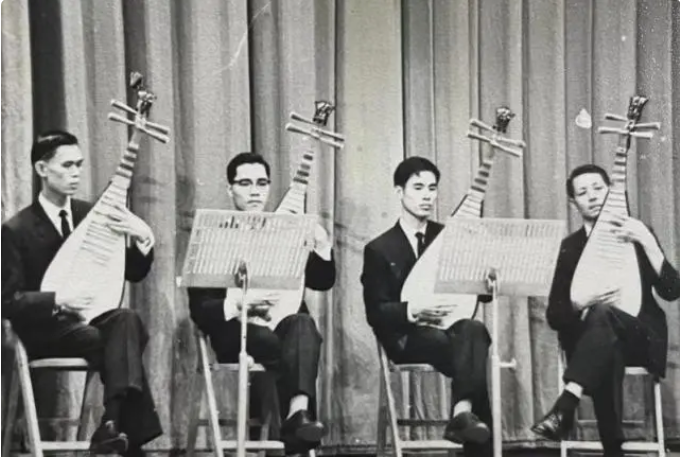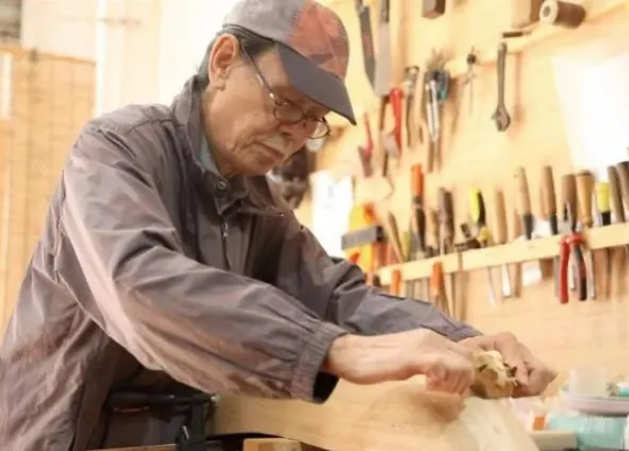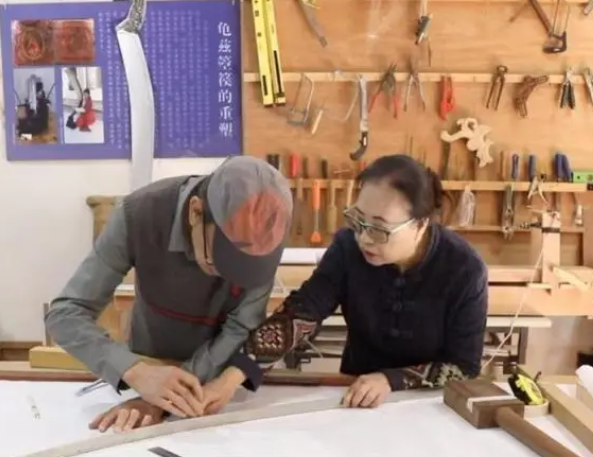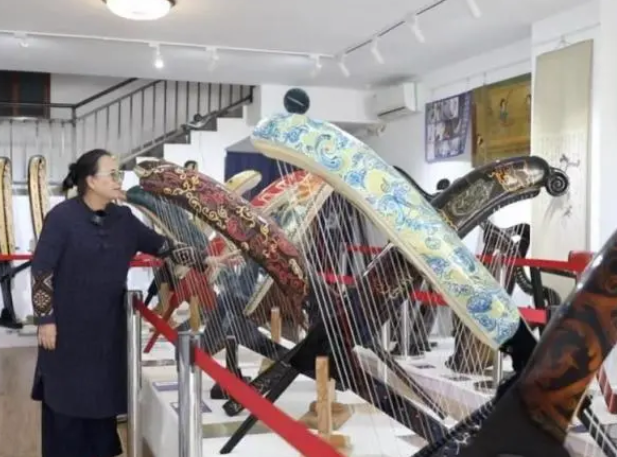Promoting folk music in the Greater Bay Area Hong Kong couple reappears Konghou
"We reproduce the Konghou not for interest, but to let people in the future know that China already had this kind of musical instrument 2,800 years ago." In the Julong Antique City in Zhongshan, Guangdong, there is a job called "Konghou Craftsman" There are dozens of ancient musical instruments "Konghou" in various shapes and exquisite shapes, all of which are from the hands of Hong Kong couple Huang Yiqi and Xu Bilan.
"Before we came to the mainland, we opened an 'Oriental Music Store' in Hong Kong, which can be said to be the first generation of folk music in Hong Kong. In 2007, we decided to sell our house in Hong Kong and come to Guangdong to concentrate on developing Konghou. Mr. Huang is now in his 80s. Now, it seems that his life is all for Konghou." The golden-wed couple told the story of their mutual support and support for the common music hobby during the more than 60 years of acquaintance, and to promote the inheritance and development of Chinese folk music.
The first generation of folk music in Hong Kong
"I have known Mr. Huang since I was 13 years old. At that time, as an alumnus, he was invited to come back to teach us, younger brothers and sisters to play the pipa." Although Huang Yiqi and Xu Bilan met because of folk music, in fact, in the early days in Hong Kong, folk music was a very important thing Popular hobby.

"At that time, the development of folk music in Hong Kong was not so ideal. Many schools mainly taught piano and violin, but I took a book of "How to Play Pipa" and taught myself section by section." Huang Yiqi said.
When Xu Bilan was learning the piano, in order to buy a pipa of 45 yuan, she could only save the monthly bus ticket to go to school, walk nearly two hours a day between home and school, and then pay the school in installments. "I learned a musical instrument during the hardships, which is also a very good thing." Xu Bilan smiled.
In 1983, because of their common love for folk music, Huang Yiqi and his wife opened a studio called "Oriental Music Store" in Hong Kong. "In the beginning, there were not many students studying folk music, and our work was relatively difficult." Xu Bilan said that until the reform and opening up in the 1990s, many musicians from the mainland came to Hong Kong to exchange, and more and more People attach great importance to folk music, and some schools even set up folk music bands. "We are almost the first generation of folk music in Hong Kong, and we are slowly developing Chinese music."
Reproduce the first person who can play the vertical konghou in China
In 1982, Huang Yiqi and his wife met Cao Zheng, a guzheng professor at the China Conservatory of Music, at a concert, and heard about the ancient instrument "Konghou" for the first time.
"I was studying to make a harp at the time, and when Mr. Cao Zheng heard it, he told me that there was a musical instrument in China called 'Konghou' that was very similar to the harp, but it was a pity that no one had mentioned this musical instrument in the past 100 years. He returned to After Beijing, they sent me a lot of materials, and since then I have been studying Konghou all day long."
Because of the lack of information on Konghou in Hong Kong and the lack of raw materials for making musical instruments, Huang Yiqi and his wife decided to sell their house in Hong Kong in 2007 and returned to Guangdong with the money to concentrate on the development of ancient Konghou.

After four years of repeated experiments and research and development, by the end of 2011, Huang Yiqi had produced two vertical Konghou that can be played. "On New Year's Day in 2012, at a party of the Guangzhou Nansha Literary Federation, we officially played the Konghou. The song was called "The Prosperity of the World", and Mr. Huang was also dubbed 'the first person who can reproduce the vertical Konghou in China'. title." Xu Bilan introduced.
Hope to let more Hong Kong compatriots know about Konghou
Over the past 10 years, Huang Yiqi and his wife have produced nearly 60 musical instruments. "After being together for more than 60 years, our love has become a family relationship. Maybe now Konghou is the thing he loves the most, not me." Xu Bilan smiled.

At present, it takes Huang Yiqi and his wife about half a year to nine months to make a Konghou. After Huang Yiqi made the "white body" of the Konghou, Xu Bilan designed the pattern of the appearance according to the characteristics of different Konghou, and then hired someone to paint and string it. In their opinion, the Konghou is not only a musical instrument, but also an advanced handicraft.

Although it took so long to make a Konghou, in Xu Bilan's view, Huang Yiqi never thought of giving up. "Sometimes I ask him, you are 80 years old, can you not do it? He said, 'If I don't do it, who will do it?' His life seems to be living for Konghou, every day at six o'clock If there are more, I will go to the studio after eight o'clock." In the hearts of Huang Yiqi and his wife, there is always a mission to promote the Konghou, and I hope more people know what the Konghou looks like and how to play it.
"We also hope that in the future, some Konghou will be brought back to Hong Kong for exhibition, so that our compatriots in Hong Kong will know that someone has done such a thing in the Greater Bay Area. This is our wish."
 渝公网安备 50010702504639号
渝公网安备 50010702504639号